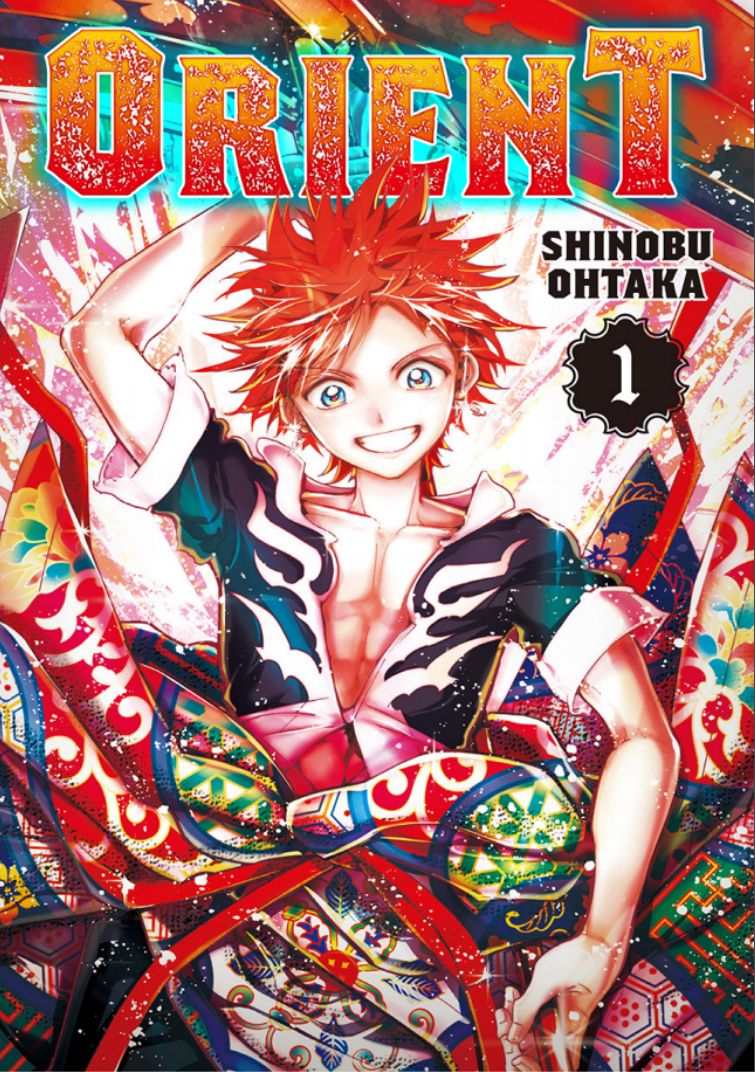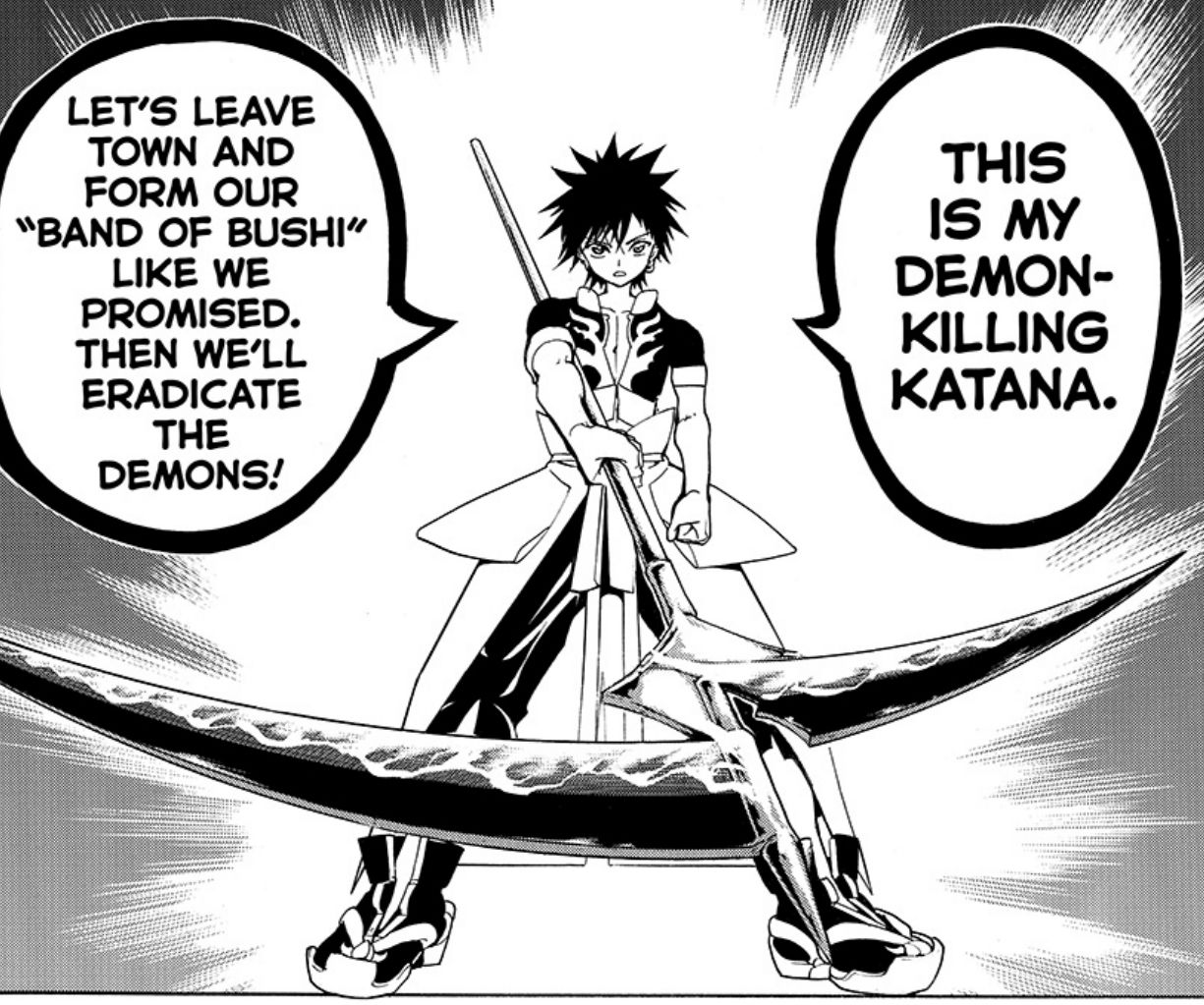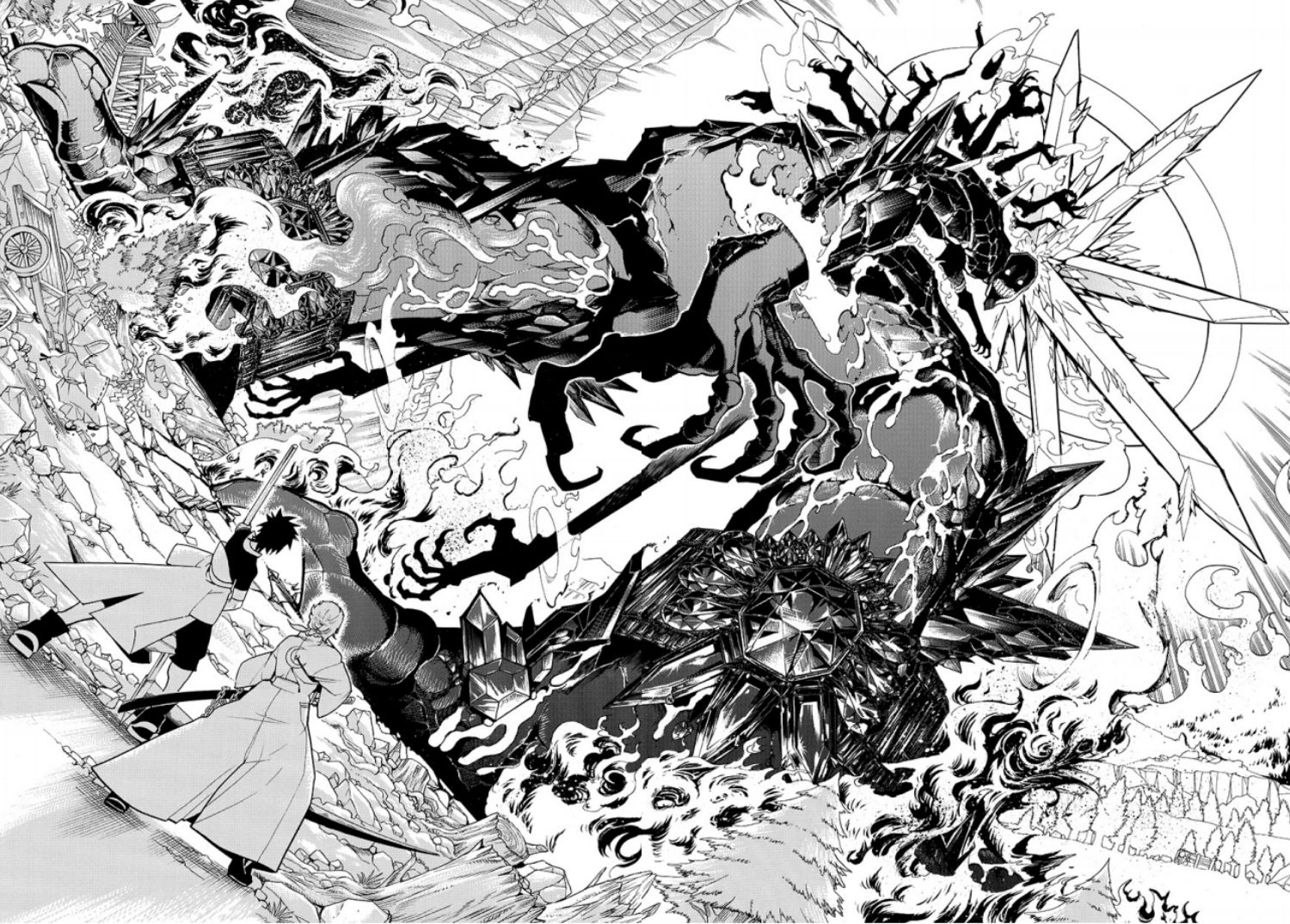Magi Creators' Orient Vol. 1
- WRITER
- Jesika Brooks (Editing), Nate Derr (Translation), Shinobu Ohtaka
- Artist
- Shinobu Ohtaka
- Letterer
- Daniel Park
- Publisher
- Kodansha
- Price
- $5.99 (Digital), $10.99 (Print)
- Release Date
- 2021-01-26
Orient is an action-adventure fantasy series written and illustrated by Shinobu Ohtaka. A currently ongoing manga, it is the follow up to her hit series Magi: The Labyrinth of Magic, and runs in Kodansha's Weekly Shonen Magazine. The first volume from Viz Media is Orient's first English-language release.
Orient is set during the Warring States or Sengoku period in Japan, and the first volume opens on a 10-year-old Musashi and his best friend Kojiro play fighting with wooden swords. Kojiro belongs to a family of "Bushi," who are samurai warriors that have been waging war against demon threats that took control of their land over 100 years ago. Fascinated by the stories of the brave Bushi who continue to do battle with the demons outside of town, Musashi is inspired to become a Bushi with Kojiro when they're older so they can aid in the struggle to free their land.
Five years later and the demons still reign. Musashi is ready to follow up on his Bushi dream but instead, he has resigned to working as a miner. Despite being a talented miner, Musashi never gave up on his dream, using mining as a way to improve his swordplay.
Ultimately Musashi's journey does begin after the truth is unsubtly revealed about his mining community. The event is the catalyst that finally exposes Musashi to the terrifying demon threat. He's excited that his beliefs about demons being evil are justified, and can't wait to put his training to use. However, he also discovers that despite his strength and determination, he is far more outclassed than he thought, which throws an interesting wrench into his plans of becoming a Bushi.
Musashi is a shonen protagonist we've seen before, with big dreams, strong morals and a huge drive to succeed. What makes the execution of his character worthwhile in Orient's first volume, though, is when he's finally faced with a threat that he can't get rid of on his own. He possesses potential, but he's still too weak and approaches his enemy recklessly, trying to brute force his way to victory. Kojiro, his best friend, is much more reserved by comparison. Despite initially participating in Musashi's starry-eyed fantasy, Kojiro has more doubts about the role of the Bushi, and whether or not using his katana to destroy is a good thing.
Over these five years, Kojiro essentially loses sight of his motivations and becomes complacent. After witnessing Musashi's conviction, he changes his tune about becoming a Bushi but discovers he still isn't as brave as his friend. This creates a cool dichotomy between the two childhood friends that will hopefully be explored more in future volumes.
The setup for the story gets the job done, but it's the art that makes Orient shine. Ohtaka does a great job of misleading readers with the early unassuming demon designs but flexes her artistic skill when those same demons exhibit more fearsome forms. She conveys their scale and strength effectively as they tower over their human prey, drawing them with intense bold lines. Each blow from a demon feels like it's hitting through its target and panels are zoomed in to dramatic effect as the characters wince in pain and fly across the panels.
The demons are terrifying, but it's the Demon God featured in this volume that really stands apart. This hulking monstrosity makes Musashi and crew look like peanuts, and the entire sequence following its introduction is epic. Once the seasoned army of impressively drawn Bushi comes into play, Musashi and Kojiro realize that taking out one of these things is no simple task; it requires strategy and a lot of teamwork. It's refreshing to see main characters so out of their league, and it brings excitement and anticipation for the growth to come.
Unlike Magi, Orient appears to be riding the wave of demon-hunting manga that has become commonplace in rival shonen magazine, Weekly Shonen Jump. However, most of those series feel more modern and grounded, while Orient is definitely more epic in scale, from the giant crew of motorcycle-riding Bushi to the larger-than-life Demon Gods. It's a promising start, and fans of Magi, or just good action shonen in general, should find themselves right at home in what's shaping up to be another grand, fantastical adventure.



